Have you ever wondered how search engines like Google understand what’s on a webpage? This is when “schema markup” comes in! Let’s learn about what it is, the different types, and how to use it step by step.
What is Schema Markup?
Schema markup is like a special code that you can add to your website. It’s like giving clues to search engines about what’s on your page. This code helps search engines show better and more exciting results to people when they search for things.
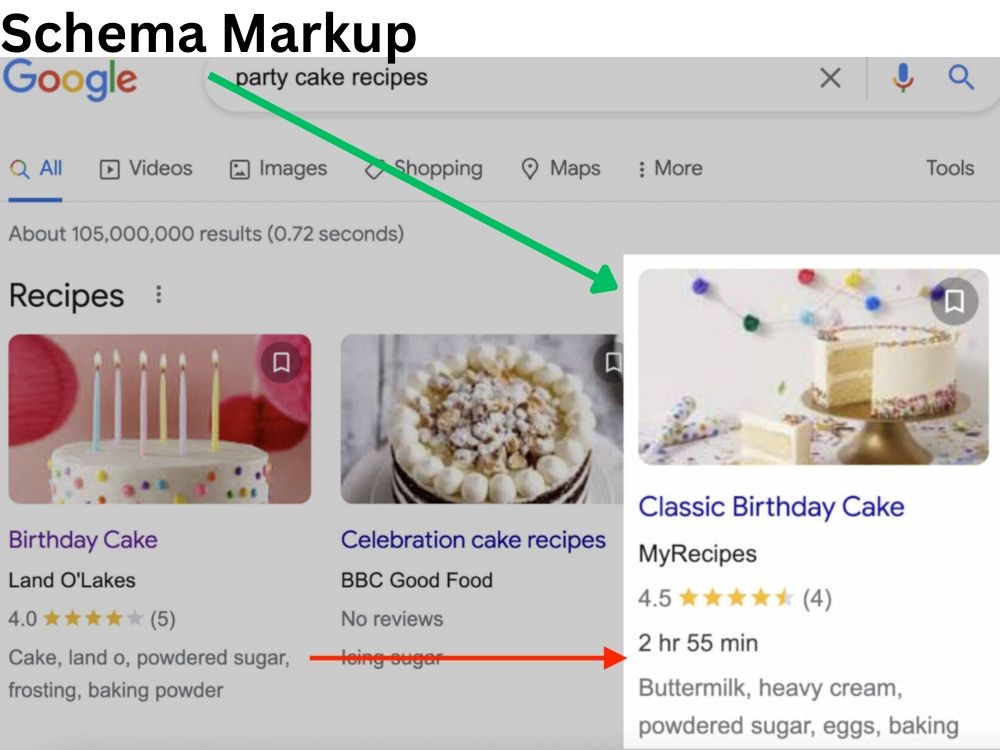
Different Types of Schema Markup
Schema markup comes in different types, and each type is like a special label that you can put on different parts of your website. Here are some common types of schema markups that can boost your website’s visibility and engagement:
- Organization Schema
- Local Business Schema
- Person Schema
- Event Schema
- Product Schema
- Review Schema
- Recipe Schema
- Article Schema
- Video Schema
Now let’s talk about them more in detail.
Organization Schema
It helps search engines understand details about your company or organization, such as its name, logo, contact information, and social media links that are displayed in search results, and improve your online presence.

Local Business Schema
If you have a physical store or business, Local Business schema can show your address, phone number, and opening hours in search results.
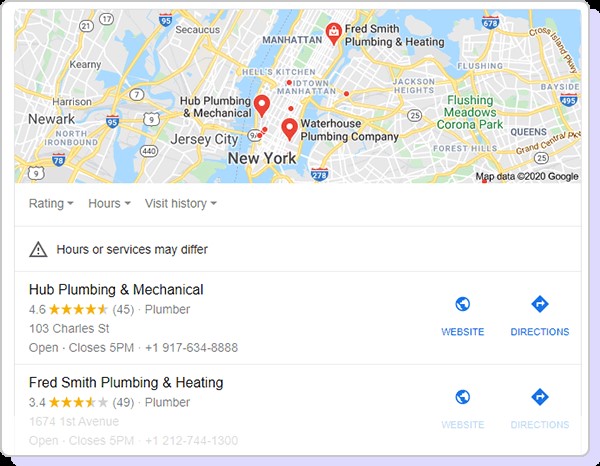
Person Schema
It provides structured data about an individual, including their name, photo, job title, and social media profiles, enhancing their online visibility in search results.

Event Schema
If you’re hosting events, Event schema can let search engines know about the event’s date, location, and even a link to buy tickets.

Product Schema
If you’re selling things online, you can use Product schema. It helps search engines show details like the name, price, and reviews of your products.

Review Schema
If people can leave reviews on your website, the Review schema can show star ratings and reviews in search results.

Recipe Schema
If your website has recipes, Recipe schema can help search engines understand the ingredients, cooking time, and even show a picture of the dish in search results.

Article Schema
If you have news articles or blog posts on your website, you can use Article schema. It tells search engines about the title, author, date, and other details of your articles.

Video Schema
For websites with videos, Video schema can display video details like thumbnails, descriptions, and even show the length of the video in search results.

FAQ Schema
If you have frequently asked questions on your site, FAQ schema can organize them neatly in search results, making it easier for people to find answers.
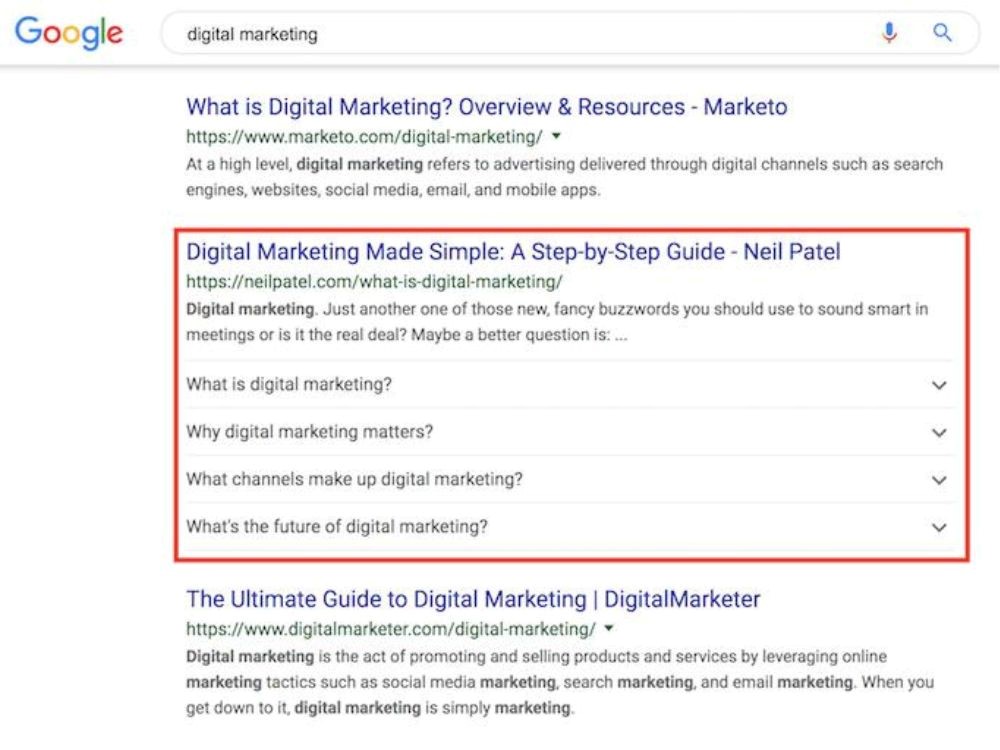
These different types of schema help your website’s information stand out in search results, making it more helpful and interesting for people who are looking for what you have to offer.
Methods of creating schema markup
1. Manual Coding: Writing the schema code directly using HTML and schema.org vocabulary.
2. Schema Markup Generators: Using online tools to generate schema code based on input information.
3. WordPress Plugins: Utilizing plugins like Yoast SEO or Schema Pro on WordPress to add schema without coding.
4. Google’s Structured Data Markup Helper: Using Google’s tool to tag elements on a webpage and generate schema code.
5. Website Builders: Adding schema through built-in options on website building platforms like Wix or Squarespace.
6. Copy and Modify: Copying existing schema code and modifying it to suit your content.
These methods cater to different levels of technical expertise and can help you effectively implement schema on your website.
How to Use Schema Markup
1. Use a Generator: Don’t worry about the code! Use a tool or generator online to make the special code for you.
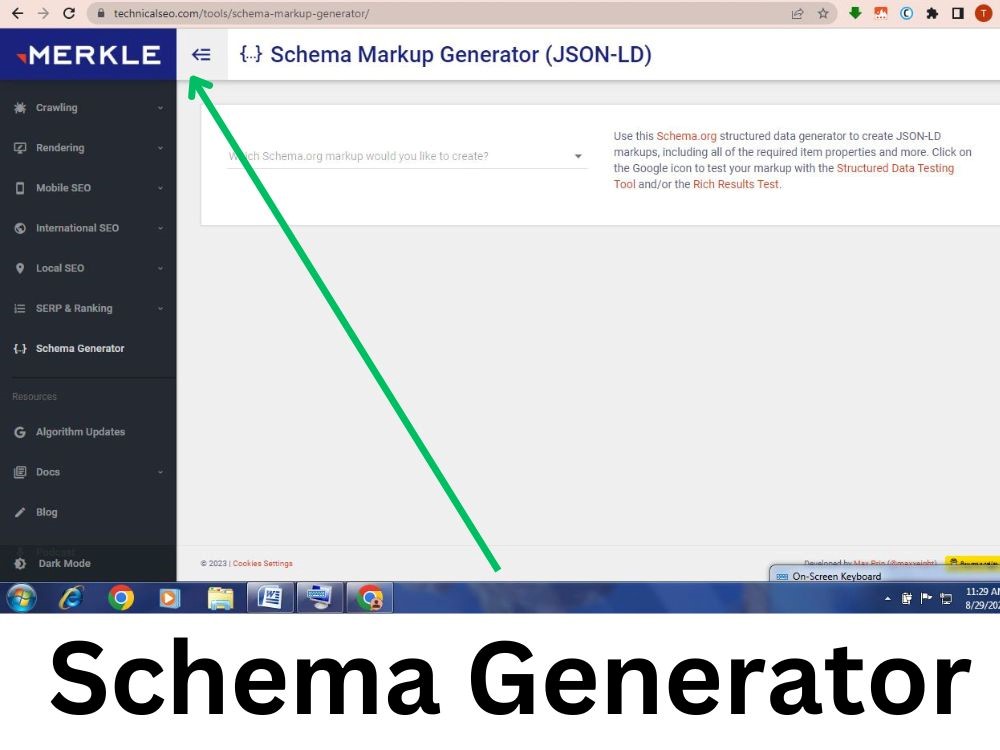
2. Pick the Right Type: First, decide what you want to show. Is it a story, something you’re selling, or an event? Select the appropriate kind of schema markup.
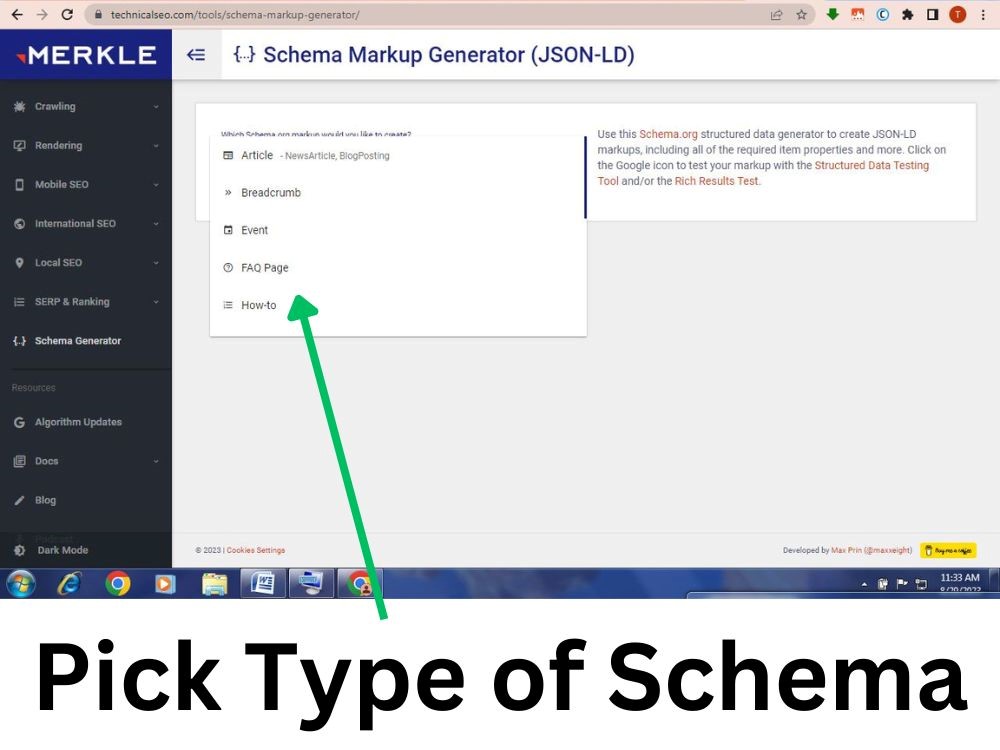
3. Collect Information: Get all the details ready. If it’s a FAQs, you’ll need questions & answers and more.
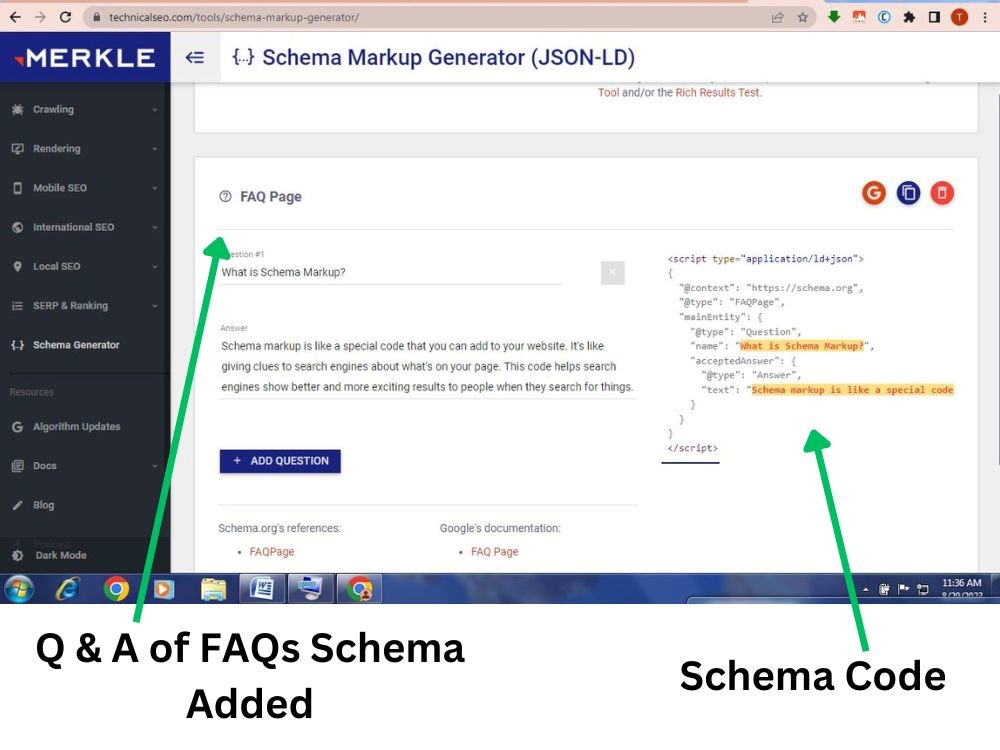
4. Put the Code In: Copy the code and paste it into the right place on your webpage.
5. Check it Out: There are tools that can check if your code is correct. Make sure it is accurate.
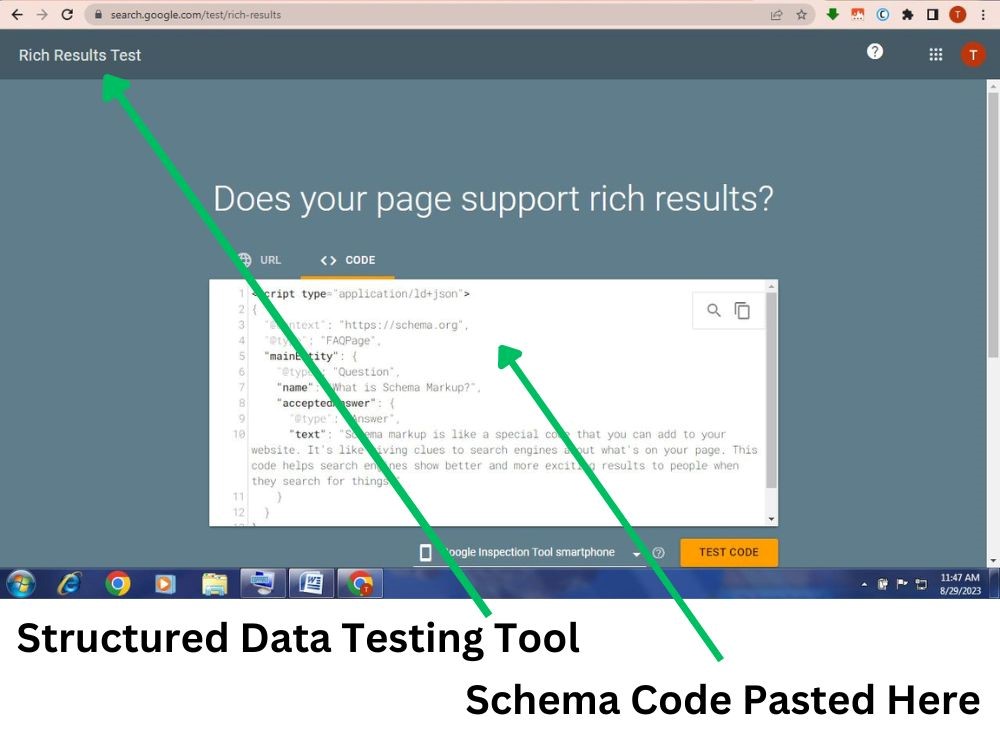
6. Wait and See: After a little while, search engines will notice your special code and make your webpage look extra cool in search results.
Now you know how schema markup works! It helps your website shine and catch people’s attention. So, the next time you’re making a webpage, remember that adding schema code can make it even more awesome!
Plugins that Make Adding Schema Codes Easier
There are special tools called plugins that can help you add schema without any hard work. Some popular ones are:
- Yoast SEO: A widely used plugin that offers schema markup features, helping you add structured data to various types of content.
- Schema Pro: A premium plugin that simplifies adding schema without requiring coding knowledge. It covers multiple schema types.
- All-in-One Schema Rich Snippets: This plugin is focused on enhancing rich snippets for your content, making them more appealing in search results.
- WP SEO Structured Data Schema: A free plugin that helps you add schema code to various content types, improving how they’re displayed in search results.
- Rank Math: This plugin not only offers SEO features but also includes options to add schema markup to your content, making it more informative in search results.
- Schema App Structured Data: A comprehensive plugin that lets you customize schema markup for different content types and situations on your website.
- WPSSO Schema JSON-LD Markup: This plugin adds JSON-LD schema markup to your website, improving how your content appears in search results and social media shares.
- SEOPress: In addition to SEO features, SEOPress offers options to add schema markup, helping you enhance the appearance of your content in search results.
Remember to choose a plugin that suits your website platform and content needs. These plugins can simplify the process of adding structured data to your site and improving how it’s presented in search engine results.
Explore: Analyzing the Types of Plugins for a New WordPress Website
FAQs:
Schema markup is code added to websites to help search engines understand and display content more effectively.
Using schema markup enhances search results with extra info, like ratings and prices, making your site more helpful.
You can add schema markup using tools or plugins, even if you’re not a coding expert.
You can add details about articles, products, events, and more to improve how your content appears in searches.
While it doesn’t directly affect rank, it improves search result appeal and user experience, indirectly benefiting your website.
In conclusion, schema markup is a powerful tool that enhances websites’ visibility and search engine performance. By providing context to search engines, it enables the creation of eye-catching rich snippets that capture users’ attention and improve click-through rates. Whether through manual coding, plugins, or online generators, implementing schema markup allows websites to stand out in the competitive digital landscape and offer users more informative search results.






